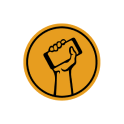Reclaiming our institutions: Why free speech matters more than ever
In October last year, three economists were awarded the Sveriges Riksbank Prize by the Royal Swedish Academy of Sciences. The august award is better known as the Nobel Prize in Economic Sciences, which they received ‘for studies of how institutions are formed and affect prosperity.’
Their insights are especially relevant at a time when we’re constantly reminded of the fragility of our institutions.
Just recently, the Acumen Edelman Trust Barometer 2025 saw New Zealand yet again listed in the ‘distrust’ category in the Trust Index (where average trust in a variety of institutions falls within 1- 49 out of 100; 50 - 59 being ‘Neutral’ and 60-100 being ‘Trust’.)
Adelle Keely, Acumen Chief Executive, wrote regarding the report “This year’s results should be a major wake-up call to all leaders. The New Zealand public expect more from our institutions. Grievance is accompanied by… [the] worry that key institutional leaders are purposely lying to us.”
A summary of the Nobel Prize winning academics’ research notes that “The introduction of inclusive institutions create[s] long-term benefits for everyone, but extractive institutions provide short-term gains for the people in power. As long as the political system guarantees they will remain in control, no one will trust their promises of future… reforms.”
The Free Speech Union shares the belief that institutions are vital for long-term stability, peace, and prosperity as a nation. We also believe the degree to which they are truly ‘inclusive’ tells of their promise for the future, either for good and bad.
Yet ‘inclusive’ is a word that elicits a visceral reaction from many nowadays, as the word is used in an Orwellian way to justify the exact opposite: exclusion and intolerance - especially of intellectual diversity.
That is why we are so concerned with strengthening institutions, to ensure the foundational premise of free speech (which is the ground on which liberal democracy is built) guides the work of these major cultural levers. An example of this work, recently, has been our efforts to realign the important work of Internet New Zealand with its founding values that facilitate a free and open internet - an internet that is truly ‘inclusive’.
In his recent opinion article, The Free Speech Union Vs Internet NZ: A Battle of domains, Mike O’Donnell tells of a dramatic saga, what he calls an ‘internet mystery: the unfolding stand-off between InternetNZ and the Free Speech Union (FSU).’ This tale of tactical skirmishes, which he deems ‘worthy of a Netflix mini-series’, is allegedly about whether InternetNZ’s otherwise pro forma, uninteresting and legally required constitutional changes can be drummed up sufficiently to into a ‘broader culture war campaign.’
I believe this is exactly what Keely writes about, the appearance that our “institutional leaders are purposely lying to us.”
The origin story of the constitutional changes (which admittedly were watered down prior to be adopted at a Special General Meeting last month, largely through pressure brought by the Free Speech Union) shows this to be what it is: I believe the cool kids call it ‘misinformation.’
The context of this ‘skirmish’ is key.
The proposed constitutional changes arose out of a self-declaration of ‘institutional racism’ made by the InternetNZ Board. This self-declaration came as a result of an independent inquiry in 2021, which emerged after staff at InternetNZ raised concerns with management and governance of the organisation after it refused to remove a ‘racist’ website.
There is an unbroken line from InternetNZ staff insisting the organisation remove content from the internet, instigating a review of culture that resulted in a declaration of institutional racism, that has resulted in constitutional changes that directly impact the future intellectual diversity of the governance of this important institution.
Yup, you guessed it, all in the name of ‘inclusion’ - (such that, you know, they will exclude those who disagree with them).
The Free Speech Union has a constructive relationship with both Police and the Chief Censor’s office. We readily accept some material, such as explicit incitement to violence, is unacceptable, even on a free and open internet. We have always asserted that incitement to violence is the antithesis of free speech.
However, determining what material can legitimately be removed from the internet is never a decision for InternetNZ to make. The fact this saga started with InternetNZ’s own staff calling for it to play the role of censor and remove content from its domain has been ignored consistently. Yet it is integral to both the concerns the Free Speech Union holds, and the sense of ‘grievance’ that is leading to the demise of trust in this institution.
O’Donnell writes that ‘If the FSU takes over, InternetNZ risks becoming a political football rather than a neutral steward of the internet’.
This asserts that somehow the FSU is ‘taking over.’ We exercise no proxy voting rights, we’re not telling anyone what to say. All we’ve done is draw attention to what’s at stake, and invite them to develop alternatives with us. Likewise, this claim naively rests on the assumption InternetNZ is governing our domain registry as a neutral steward. But thousands of Kiwis, when reviewing the facts, have come to believe they are not. The word ‘neutral’ stands to endure a similar fate to that of its cousin ‘inclusion’. Does it now actually mean taking substantive positions on contested ideological questions, as long as they take ‘the right stand’?
Polling conducted for the Free Speech Union in 2023 showed that while 75% of Kiwis believed free speech is a ‘dominant Kiwi value’, a majority of Kiwis also believed that this value is under threat. This distortion of language is exactly what this threat looks like. Free speech allows the promulgation of the worst ideas. It is also the single best correction mechanism against them.
Free speech is the essence of neutrality. Free speech is not the enemy of inclusion. It is its foundation. That’s why this fight matters.








